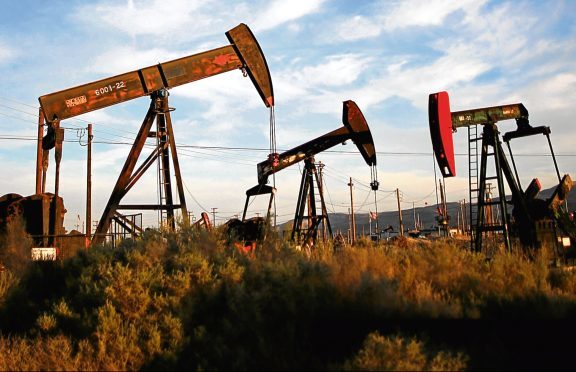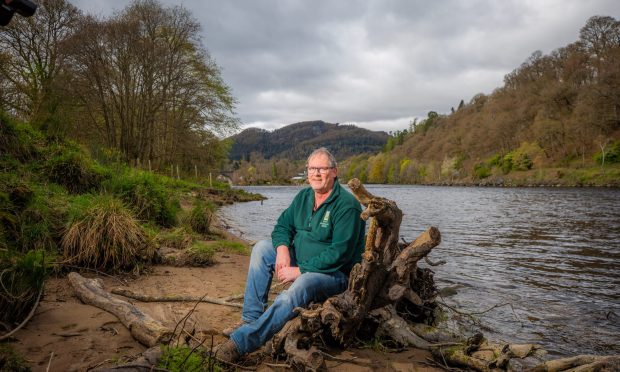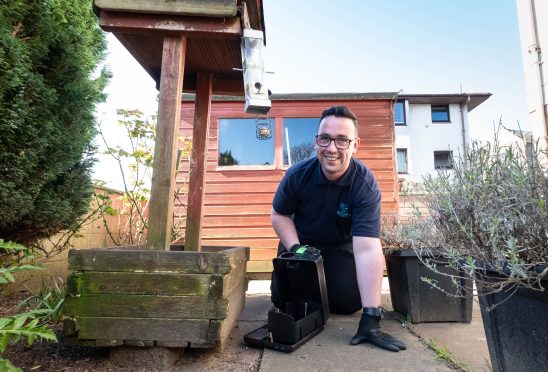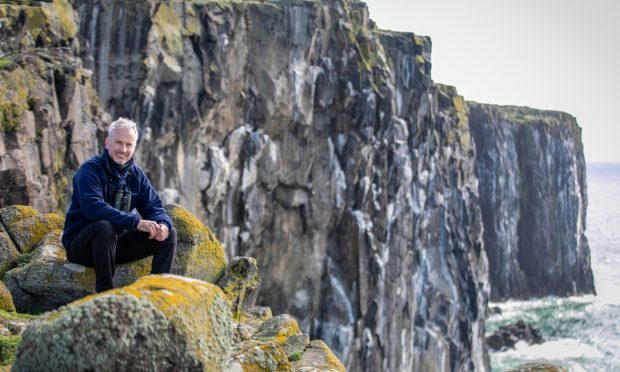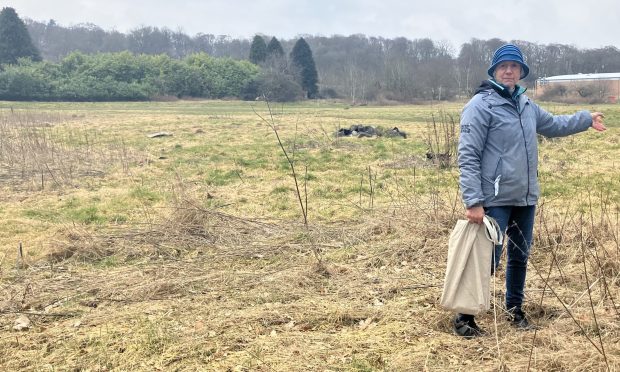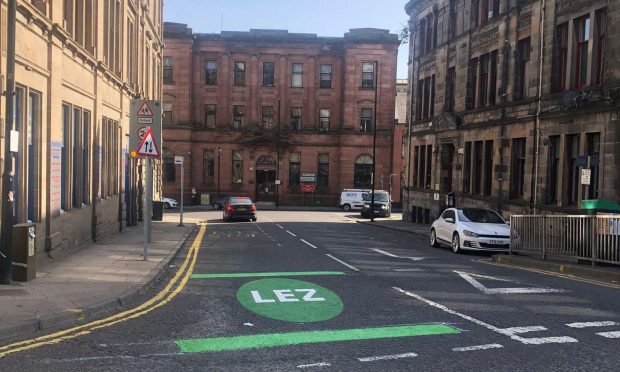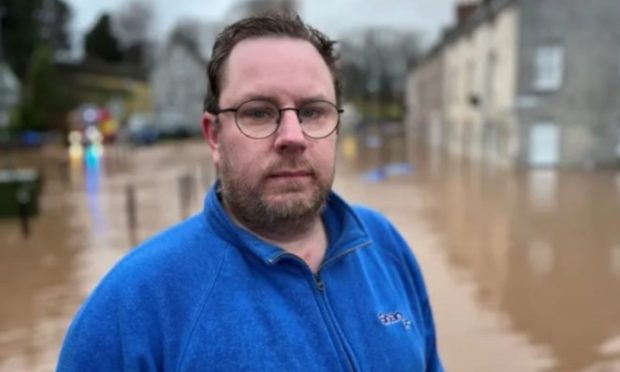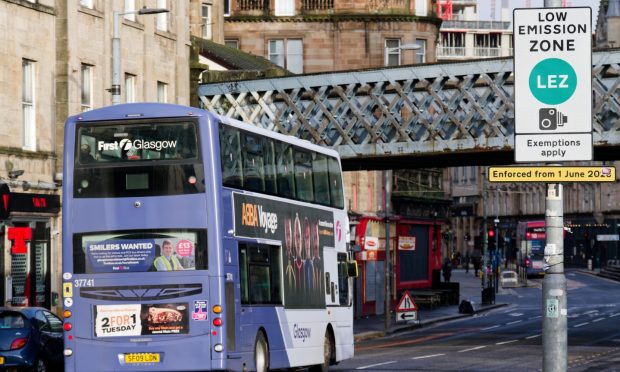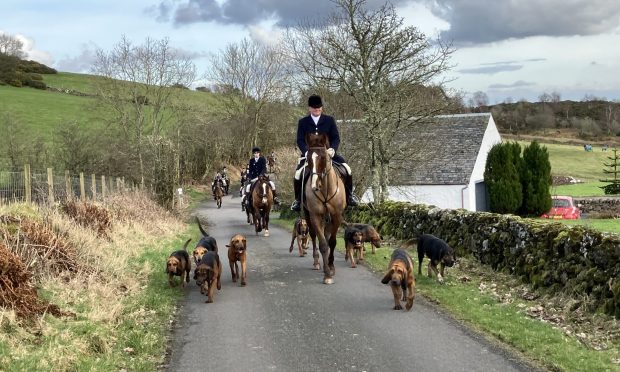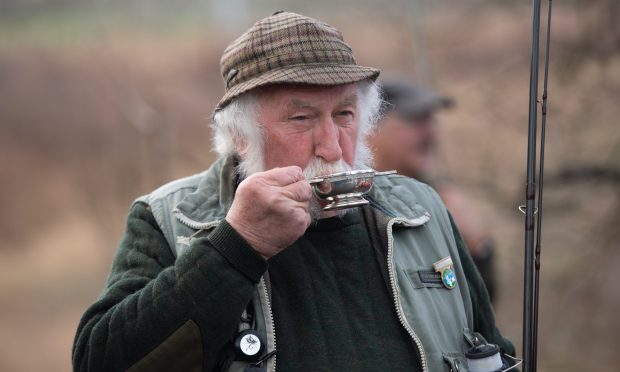Sir, – I write further to the recent announcement that the consultation carried out by the Scottish Government returned 99% support for a ban on on-shore fracking in Scotland.
As a direct result of this consultation, we are informed, there will be an indefinite moratorium on fracking.
It is interesting to note that this tends to contradict other recent public consultations, albeit ones that were conducted via the ballot box.
It all seems to have started with the 2014 referendum on Scottish independence.
The outcome was ignored.
Ever since then another consultation ballot appears to have been on the agenda.
Then there was the 2016 EU referendum.
Once again, the outcome was denied and there have been many calls for a re-run.
Then there was the fact that the Conservatives won the 2017 general election.
This is yet another result that was later disputed.
Is it therefore reasonable for the 1% who are in favour of on-shore fracking to lobby all and sundry?
Should they start legal actions and promote mass street rallies?
Should they call for civil unrest?
The answer to all these questions is no, probably not.
However, the fact is that the SNP should be made to produce verifiable evidence of how they claim to have arrived at the 99% since results like this are never believable.
David M Lansdell.
8 Ash Grove,
Portlethen.
Prospect of jobs boon in tatters
Sir, – The SNP-dominated Scottish Government has outlawed fracking despite the fact that it would create 3,100 jobs and bring £6.5 billion of investment to Scotland.
They have sold Scotland’s future for political gain.
If fracking had gone ahead local communities would have benefited by £1 billion.
Independent reports have concluded that fracking can be carried out without risk.
The comments of some of the 60,535 who responded to the consultation show their naivety.
There are comments along the lines of ‘fracking will kill citizens and reduce life expectancy’ and ‘earthquakes will make climate change worse’.
There are hundreds of similar irrational comments which show the degree of brainwashing by anti-fracking proponents.
Ineos is importing shale gas from America for its cracker plant at Grangemouth to provide the raw materials used in the manufacture of plastic goods.
Just about everything we touch contains plastic, from shoes to motor vehicles, so will the 60,000 and supporters of other green organisations immediately stop using goods ‘tainted’ with shale gas?
Clark Cross.
138 Springfield Road,
Linlithgow.
Fuel poverty plight ignored
Sir, – Much of Scotland’s population lives in fuel poverty.
Gas is used by most people for heating.
Drilling domestic supplies would drive down the cost of gas.
It is wrong that this avenue towards cheaper heating for the poorest in society is not being explored.
Instead of banning fracking on the grounds of what the green loons say might happen, why not allow a test site to drill for gas and see what environmental effects, if any, result?
William Loneskie.
9 Justice Park,
Oxton.
Greens lack consistency
Sir, – On BBC Radio Scotland recently Dr Richard Dixon, of Friends of the Earth, cited the adverse effect on the landscape and tourism that fracking would have.
Yet he has supported acres of ugly windfarms that have already disfigured some of our most magnificent scenery.
As with many of the green persuasion, Dr Dixon displays a stunning lack of consistent thinking.
Malcolm Parkin.
15 Gamekeepers Road,
Kinnesswood.
Need to set record straight
Sir, – As autumn follows summer and night follows day, the blizzard of unionist ‘SNP bad’ output attempting to blind us to the achievements of the present Scottish Government continues unabated.
Therefore, in an effort to achieve a modicum of balance, a few facts regarding Scotland’s governance won’t go amiss.
In spite of the strait jacket imposed by Westminster, this year Scotland recorded a rate of economic growth four times faster than the rest of the UK, with employment reaching a record high.
That Westminster holds all the key economic levers and has all of the UK’s resources at its disposal, yet continually stumbles from one crisis to another should be a wake up call to everyone in Scotland who question our own abilities.
With the credit agency Moody’s recent downgrading of the UK’s rating to Aa2, down from Aa1, and other agencies’ ratings of AA, down from AAA or AA+, we have yet another reason to doubt Westminster’s self- proclaimed superiority in all matters economic.
The UN has slated the UK Government for policies which harm its own people, and are in breach of international human rights.
At present the SNP are doing all they can to mitigate the effects of Tory policies rejected by Scots, but their valiant efforts will be undermined by a London establishment hell bent on returning to medieval rule, while inflicting on Scots yet another ‘rough wooing’.
Concerns are voiced by the Red Cross that there is a humanitarian crisis in England’s NHS.
This is in stark contrast to the Nuffield Trust’s findings that there are lessons the rest of the UK can learn from the Scottish Government’s approach to our own health service, in spite of the pressures placed on it and what the Trust describe as ‘a largely hostile press looking to attack their record on the NHS’.
The Curriculum for Excellence, a cross party initiative dating from 2002, is just one of many long term problems which the SNP have been left to tidy up.
It has now been praised by the International Council of Education Advisers as delivering ‘clear and positive momentum in Scottish education, particularly in relation to the devolution of more power and resources directly to schools’.
Add investment in a potentially world leading Scottish green energy programme, infrastructure projects neglected by previous administrations, and the relentless ‘SNP bad’ narrative is shown for what it is – a churlish inability to give credit where it is due.
Ken Clark.
335 King Street,
Broughty Ferry.
Catalonia question vital
Sir, -I can see huge deflections coming along about Catalonia.
The discussions will probably be all about the absolutely appalling behaviour of the Spanish Government in Catalonia and about the (entirely predictable) initial EU response to it.
The discussion, however, should be about the inalienable right of self-determination of the people of Catalonia.
This will be swept under the table or, if it is referenced at all, it will be met with a fusillade of legal and constitutional nonsenses.
I hope the Scottish Government and others recognise the importance of this.
A constitution and its laws are only legitimate if they are supported by a majority of the people who live under them.
If a majority of the people of Catalonia reject the provisions of the Spanish constitution it has no validity or legitimacy in Catalonia.
It’s called democracy.
Dave McEwan Hill.
Sandbank,
Argyll.
An important distinction
Sir, – The prevailing interpretation of America’s constitutional right to bear arms is at the heart of the gun control problem, not least because it wilfully distorts the obvious meaning and context of the Second Amendment.
The ‘right of the people to bear arms’ is linked directly to the need for a ‘well regulated militia’.
Its context implies integrity of purpose situated within habitual military discipline.
However, the common interpretation refers merely to a ‘right’ to own battlefield weapons in the family home.
It is a distinction worth making.
Rev Dr John Cameron.
10 Howard Place,
St Andrews.
